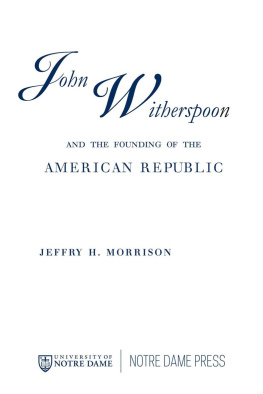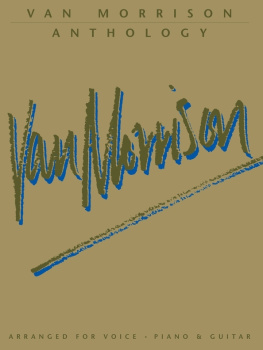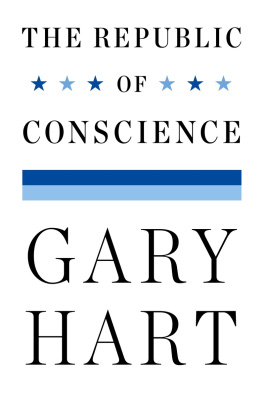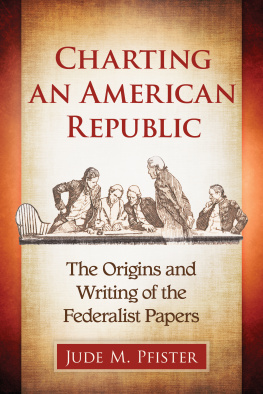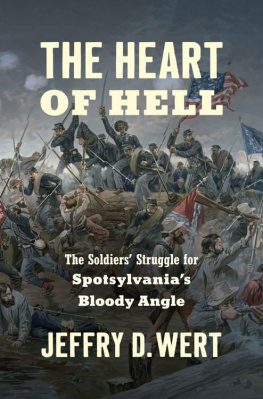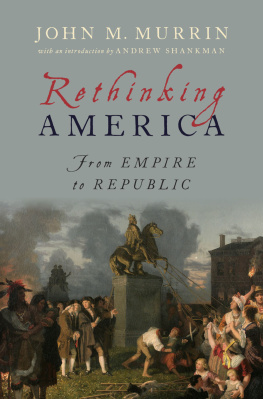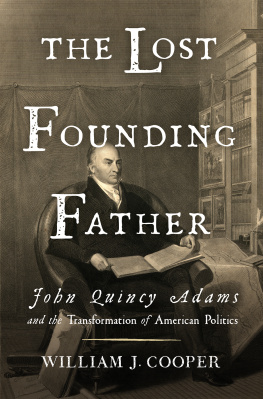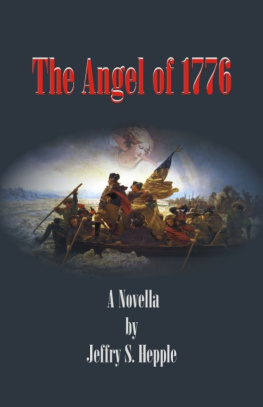Jeffry H. Morrison - John Witherspoon and the Founding of the American Republic
Here you can read online Jeffry H. Morrison - John Witherspoon and the Founding of the American Republic full text of the book (entire story) in english for free. Download pdf and epub, get meaning, cover and reviews about this ebook. year: 2003, publisher: University of Notre Dame Pess, genre: Politics. Description of the work, (preface) as well as reviews are available. Best literature library LitArk.com created for fans of good reading and offers a wide selection of genres:
Romance novel
Science fiction
Adventure
Detective
Science
History
Home and family
Prose
Art
Politics
Computer
Non-fiction
Religion
Business
Children
Humor
Choose a favorite category and find really read worthwhile books. Enjoy immersion in the world of imagination, feel the emotions of the characters or learn something new for yourself, make an fascinating discovery.
- Book:John Witherspoon and the Founding of the American Republic
- Author:
- Publisher:University of Notre Dame Pess
- Genre:
- Year:2003
- Rating:5 / 5
- Favourites:Add to favourites
- Your mark:
- 100
- 1
- 2
- 3
- 4
- 5
John Witherspoon and the Founding of the American Republic: summary, description and annotation
We offer to read an annotation, description, summary or preface (depends on what the author of the book "John Witherspoon and the Founding of the American Republic" wrote himself). If you haven't found the necessary information about the book — write in the comments, we will try to find it.
John Witherspoon and the Founding of the American Republic — read online for free the complete book (whole text) full work
Below is the text of the book, divided by pages. System saving the place of the last page read, allows you to conveniently read the book "John Witherspoon and the Founding of the American Republic" online for free, without having to search again every time where you left off. Put a bookmark, and you can go to the page where you finished reading at any time.
Font size:
Interval:
Bookmark:

 William Wilberforce once remarked that a man he had just met was sadly in need of the chastening hand of a sound classical education. The same can be said of me; but fortunately I had the benefit of many chastening hands (and brains) along the way to writing this book. To begin with, there were my teachers at Georgetown University: Walter Berns, George Carey, and Joshua Mitchell. Carey, that most enlightened person, made especially trenchant suggestions. There were also these colleagues and mentors who helped me in innumerable ways: Daniel Dreisbach of the American University; my former colleagues in the Department of Political Science at the United States Air Force Academy, particularly Paul Carrese and Stephen Knott (now at the University of Virginia); John Witte, Jr., of Emory University Law School; Mark Hall of George Fox University; Garrett Ward Sheldon of the University of Virginias College at Wise; Michael Novak of the American Enterprise Institute; Barry Ryan of Regent University; and Robert George of Princeton University. I owe a special debt to my editor (now friend) at the University of Notre Dame Press, its associate director, Jeffrey Gainey. Of course, as academic authors are compelled to say, none of these people is to be held accountable for the books shortcomings and errors, though I do recall Publius saying something like I never expect to see a perfect work from imperfect man.
William Wilberforce once remarked that a man he had just met was sadly in need of the chastening hand of a sound classical education. The same can be said of me; but fortunately I had the benefit of many chastening hands (and brains) along the way to writing this book. To begin with, there were my teachers at Georgetown University: Walter Berns, George Carey, and Joshua Mitchell. Carey, that most enlightened person, made especially trenchant suggestions. There were also these colleagues and mentors who helped me in innumerable ways: Daniel Dreisbach of the American University; my former colleagues in the Department of Political Science at the United States Air Force Academy, particularly Paul Carrese and Stephen Knott (now at the University of Virginia); John Witte, Jr., of Emory University Law School; Mark Hall of George Fox University; Garrett Ward Sheldon of the University of Virginias College at Wise; Michael Novak of the American Enterprise Institute; Barry Ryan of Regent University; and Robert George of Princeton University. I owe a special debt to my editor (now friend) at the University of Notre Dame Press, its associate director, Jeffrey Gainey. Of course, as academic authors are compelled to say, none of these people is to be held accountable for the books shortcomings and errors, though I do recall Publius saying something like I never expect to see a perfect work from imperfect man.Spring 2004 | Princeton, New Jersey |
 In the northwest quadrant of that monumental city, Washington, D.C., a bronze statue of John Witherspoon towers over traffic between Connecticut Avenue and N Street: stately, imposing, and altogether ignored. Most people who work or live in Washington, even residents of fashionable Northwest, are equally ignorant of its existence (it is a stones throw from a well-known statue of Longfellow) and the man it memorializes.
In the northwest quadrant of that monumental city, Washington, D.C., a bronze statue of John Witherspoon towers over traffic between Connecticut Avenue and N Street: stately, imposing, and altogether ignored. Most people who work or live in Washington, even residents of fashionable Northwest, are equally ignorant of its existence (it is a stones throw from a well-known statue of Longfellow) and the man it memorializes.Font size:
Interval:
Bookmark:
Similar books «John Witherspoon and the Founding of the American Republic»
Look at similar books to John Witherspoon and the Founding of the American Republic. We have selected literature similar in name and meaning in the hope of providing readers with more options to find new, interesting, not yet read works.
Discussion, reviews of the book John Witherspoon and the Founding of the American Republic and just readers' own opinions. Leave your comments, write what you think about the work, its meaning or the main characters. Specify what exactly you liked and what you didn't like, and why you think so.

